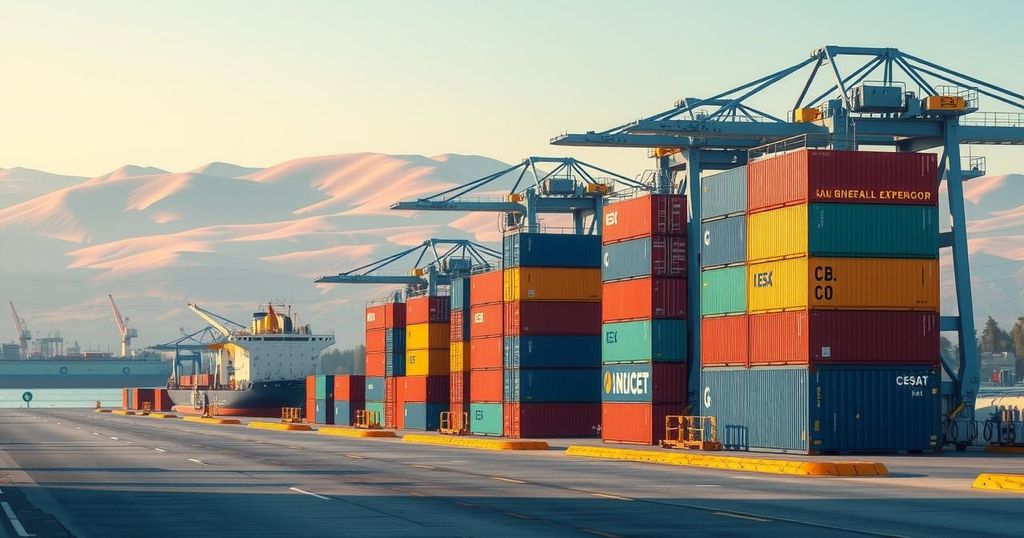Marsa Maroc is expanding its operations in Africa with three new international subsidiaries: Marsa Djibouti, which will focus on petroleum logistics, and Marsa Benin, managing terminals at the Port of Cotonou. The expansion is backed by significant financial support and aims to enhance its footprint in key African markets. This growth is part of a broader strategy to diversify operations and develop public-private partnerships throughout the continent.
Marsa Maroc, Morocco’s leading port operator, is enhancing its influence in African logistics by establishing three new international subsidiaries, as authorized by government documentation published in the Official Gazette. The initiative revolves around the newly formed Marsa Maroc International Logistics, which has been capitalized at MAD 300 million (approximately $30 million), tasked with overseeing international investment projects.
The parent entity will manage two specialized subsidiaries: Marsa Djibouti and Marsa Benin. In East Africa, Marsa Djibouti will acquire a stake in Damerjog Oil Jetty FZE, which is responsible for the development and management of a petroleum terminal within Djibouti’s free zone. This strategic initiative aims to capture significant logistics flows related to petroleum products, particularly targeting both the Ethiopian and Djiboutian markets.
In West Africa, Marsa Benin will manage terminals 1 and 5 at the Port of Cotonou through a management contract with Benin Manutentions SA. This advantageous location on the Atlantic coast will facilitate access to major West African markets including Nigeria, Niger, and Burkina Faso, further strengthening Marsa Maroc’s regional logistics capabilities.
Marsa Maroc’s expansion follows a period of significant domestic success, managing 25 terminals across 11 Moroccan ports, including the strategically important Tanger Med 1 and Casablanca. The company’s operations are expected to expand with a recent agreement to operate a container terminal at Nador West Med port, which will accommodate over three million twenty-foot equivalent units and is set to commence operations in mid-2026.
Financially, Marsa Maroc demonstrated strong performance, reporting profits of MAD 852 million ($85.2 million) in the previous year, reflecting a 5% annual increase. To fund this expansion, the company secured MAD 690 million ($69 million) from the European Bank for Reconstruction and Development to enhance its terminal capacity.
As a 25% state-owned entity, with a 35% shareholding in Tanger Med Port, Marsa Maroc is committed to broadening its African presence. The establishment of the new subsidiaries, each capitalized at MAD 300,000 ($30,000), is a significant milestone in its growth strategy. According to Les Inspirations Éco, “From a strategic perspective, the creation of these subsidiaries aligns with Marsa Maroc’s roadmap to become a key player in port infrastructure management and logistics services across the African continent.”
This expansion strategy aims to diversify the company’s portfolio while leveraging synergies with local partners. Furthermore, the company is actively exploring additional growth opportunities through public-private partnerships for port management in various African nations, underscoring its commitment to enhancing its role in the continent’s logistics sector.
Marsa Maroc’s expansion into Africa through the establishment of subsidiaries in Djibouti and Benin represents a significant stride in enhancing its logistical capabilities across the region. By targeting strategic markets and leveraging local partnerships, the company aims to solidify its presence in the African logistics landscape. Its financial performance and strategic initiatives indicate a promising future as it diversifies its portfolio and explores new growth opportunities.
Original Source: moroccoworldnews.com




